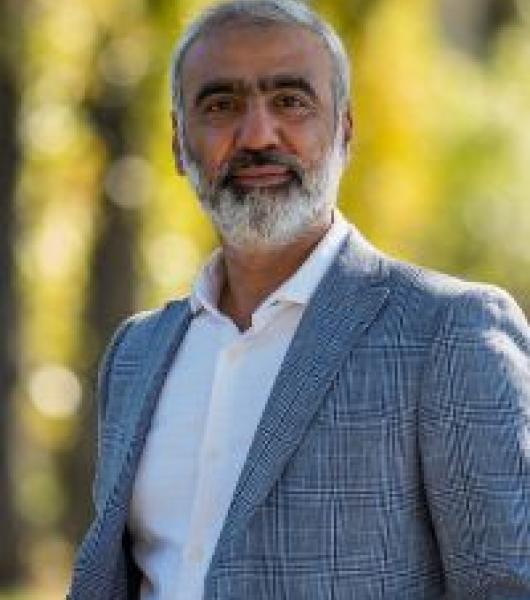Moeen Cheema is an Associate Professor at the ANU College of Law. He earned his PhD from the ANU College of Law, Master of Laws from Harvard Law School, and Bachelor of Laws (Hons) from the University of London. He has extensive experience in research, teaching and consultancy work across the fields of comparative public law, criminal law, and legal and political developments in Pakistan. An interdisciplinary researcher, his legal scholarship draws on critical approaches to law, constitutional politics and judicial review, criminal justice systems, the intersection of the state and Islamic law, and post-conflict state-building.
Moeen has authored and edited several books, chapters and papers examining the history of the law and courts in Pakistan, including Courting Constitutionalism The Politics of Public Law and Judicial Review in Pakistan (Cambridge University Press, 2022). In 2021, he was awarded funding under the Australian Research Council’s DECRA scheme for his project investigating the post-conflict criminal justice reform program in north-western Pakistan.
Significant research publications
View more publications on the ANU Researchers website
View more publications on the ANU Researchers website
Link to ANU researchers profile
Grants
The China Pakistan Economic Corridor (CPEC) is the first and most significant stage of China’s ambitious ‘One Belt One Road’ program that is set to re-draw the political and economic geography of South and Central Asia. This fellowship program brought together Pakistani scholars working on diverse aspects of CPEC and its wider ramifications for the region. The program was designed to provide a platform to systematically engage with CPEC-related issues, and thereby develop a sustainable network of organizations that serve as a nodal point for continuing research and policy work.
This fellowship program brought together several organizations that are involved in litigation, research and public advocacy aimed at the reform of the criminal justice system in Pakistan. The program was designed to enhance the research, advocacy, public policy and law reform oriented skills of the fellows and the capacities of their organizations. The program also aimed to develop a sustainable network of partner organizations working on criminal justice research and reform in Pakistan.
Consultancies
Conducted a political economy analysis of the formal and informal legal institutions in Pakistan’s tribal areas bordering Afghanistan with a view to developing the strategy for their prospective integration into the Pakistani state structure.
Developed the ‘Rule of Law Roadmap for the Province of Khyber Pakhtunkhwa, Pakistan as part of the technical assistance provided by Adam Smith International (ASI) and the UK Department for International Development (DFID). The Roadmap lays out a 5-year strategy for the reform of the criminal justice system including the institutions of police, judiciary, prosecution, prisons, probation and parole.
Conducted an evaluation of the curriculum, methodology and effectiveness of judicial trainings imparted by the KPJA with the support of the UNDP.
Prepared a report for the UNDP Strengthening Rule of Law Program analysing the baseline data on public perception of and engagement with formal and informal justice sector institutions in the southern districts of Khyber-Pakhtunkhwa, Pakistan.
Advised Aitebaar Program, Coffey on an integrated correctional services policy in the province of Khyber-Pakhtunkhwa, Pakistan covering prisons, probation and parole.
Advised the ICJ on the possibilities of prosecution of murder based solely on circumstantial evidence in cases of enforced disappearance. The report included a comparative analysis of relevant criminal law in a number of jurisdictions as well as of the jurisprudence of international tribunals.
Advised USAID team on the historical contexts of Pakistan's legal system and authored part of the Report. The report is available online at http://pdf.usaid.gov/pdf_docs/PNADO130.pdf.
Advised UN-Habitat on land rights issues and compensation-related grievances in the areas of northern Pakistan affected by the earthquake of October 2005.
Led teams of students and researchers affiliated with RISEPAK based at the Lahore University of Management Sciences (LUMS), Pakistan, in research and date collection on post-earthquake rehabilitation and reconstruction compensation scheme.
Books & edited collections
Refereed journal articles
Book chapters
Conference papers & presentations
